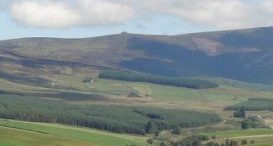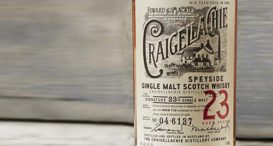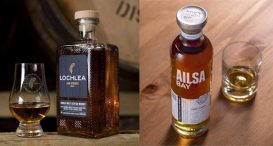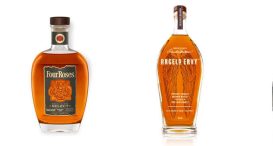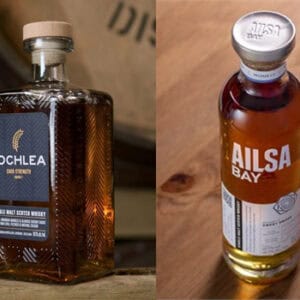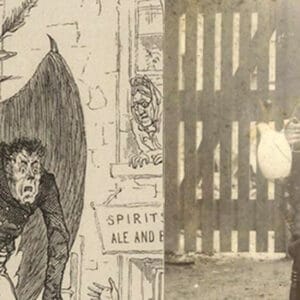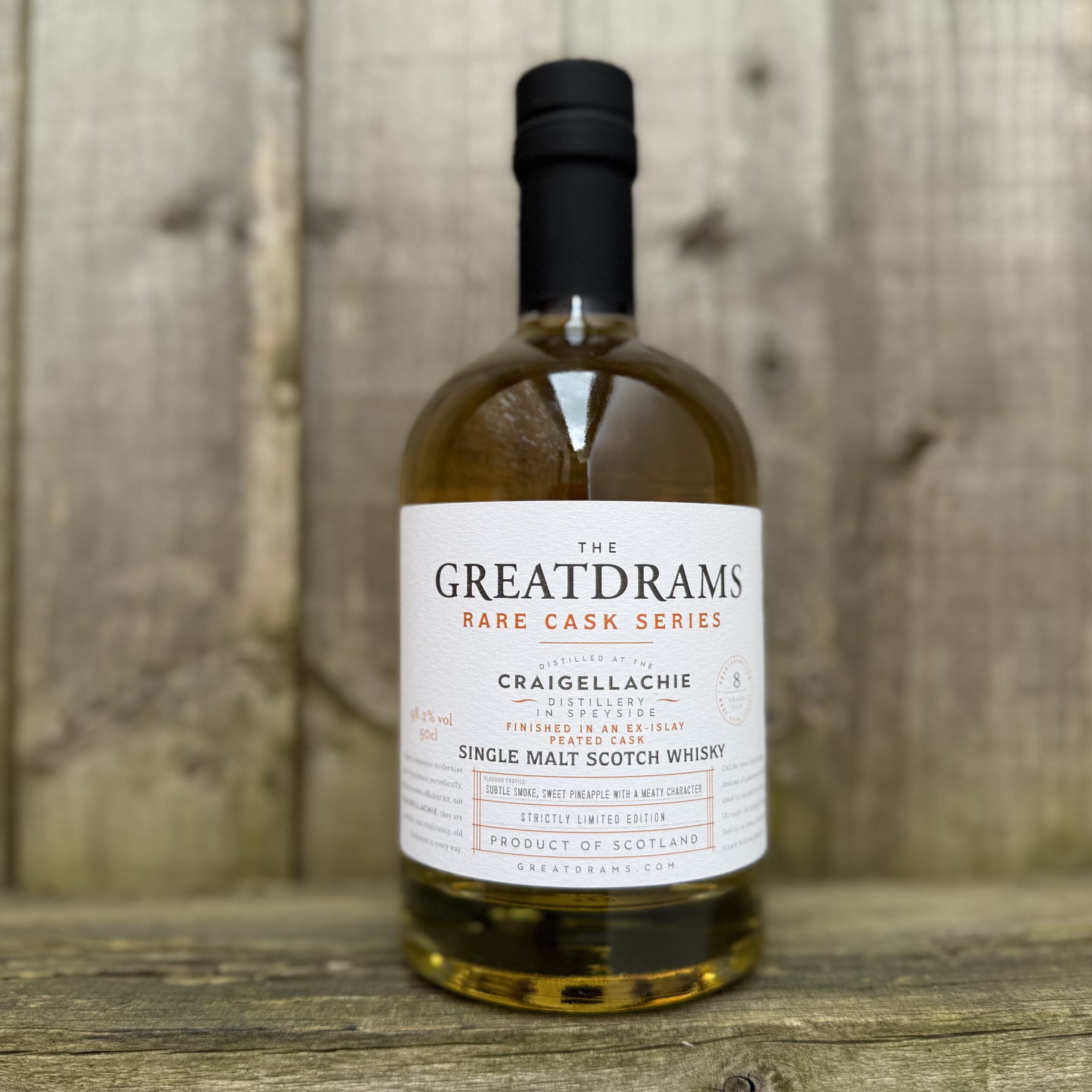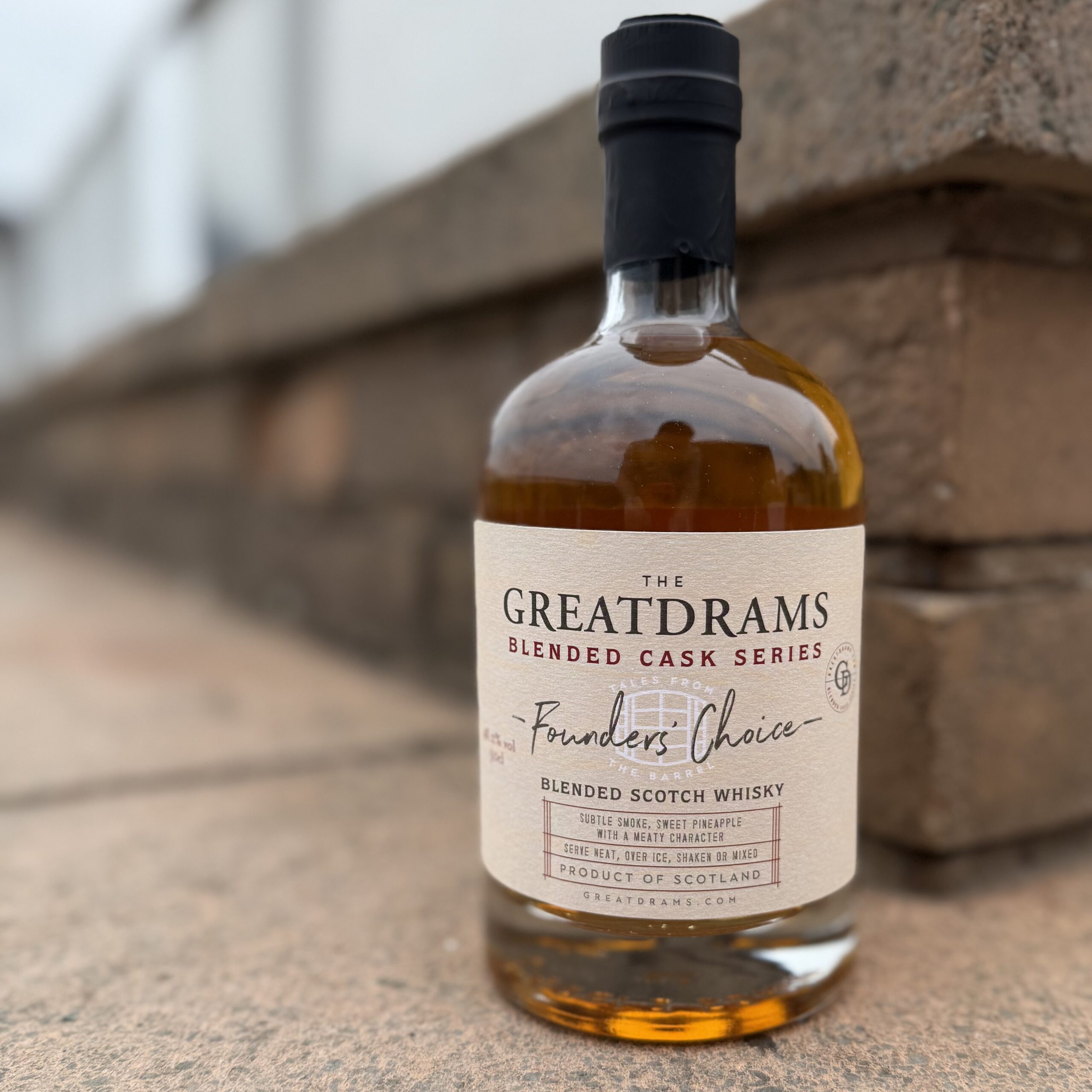The Effect of Wood Casks on Whisky
let’s begin
What kind of wood casks are used to age whisky and how are casks made
As well as being a small car, a cooper is a person who makes oak wood casks. A few distilleries still have their own cooperages, where their casks are hand made, but it is more common for distilleries to buy casks these days.
Coopering is a traditional craft that dates back hundreds of years, but that doesn’t mean it’s gotten any easier.
Let’s go through the process of making wood casks, which some professional coopers can do in only four hours!
- Firstly, wooden planks are cut into staves, which are curved and fit together to form the middle of the cask. It is curved by charring it and hollowing out the middle with a specialised knife. The edges are also curved so they fit together better.
- Without the use of any kind of sealant, the cooper must connect each stave to one another. There is nothing holding a cask together other than well-made staves and a few metal hoop, and the cooper must get the angle that they are connected by to within 2000th of an inch.
- Once the first metal hoop has been connected, you have to make the wood flexible. This is done by steaming it so it becomes moist and malleable. After it has been steamed, you place it over a fire. More hoops are added to keep it together before placing it over the fire again. The fire helps to ensure that the staves remain firmly in place.
- Now comes the final stages, when the bung hole is drilled to allow easy access to the liquid inside.
- Some distilleries, especially in America, will char their casks on the inside, so as to encourage smokier, sweeter flavours to develop. This can be done in a number of ways, such as lighting the cask on fire and letting it burn for a certain amount of time or using a large blow torch to control the flames.
Wood Cask Types used to mature Whisky
Perhaps the most important thing to note about wood casks is that they are not all barrels. To answer the questions what is the difference between a barrel and a cask: as the saying goes, all barrels are casks, but not all casks are barrels.
There are several different types of wood casks available to Whisky producers. Size is vital to consider when maturing a whisky, as smaller casks mature whisky faster, as there is more interaction between the wood and the liquid.
Is bigger always better?
However, this does not automatically mean that distillers will choose smaller casks. The longer a whisky spends in a cask, the smoother it becomes. This means larger casks are in demand as they allow the whisky to soak up lots of flavour while improving the mouth feel at the same time.
There is a wide range of Whisky cask sizes, with the smallest being a 40 litre bloodtub and the largest being a 700 litre Gorda.
| Name | Capacity (Litres) | Details |
| Bloodtub | 40 | Usually used in the brewing industry, this is a very small tub that is occasionally used for limited expressions |
| Quarter Cask | 50 | Small and used to quickly mature Whisky |
| American Standard Barrel | 200 | Common in the Bourbon and Scotch industry and made from American oak |
| Hogshead | 225 | Very common, made from American oak |
| Barrique | 300 | Used in the wine industry, Barriques are bound with wooden hoops as opposed to metal hoops |
| Puncheon | 500 | Can be made from either American or Spanish oak, depending on whether it is for maturing Bourbon or Sherry |
| Butt | 500 | Made from European oak and mostly used to mature Sherry, these have become very popular in the Whisky industry |
| Port Pipe | 650 | Used to mature Port, these are long casks usually used to finish Whisky and are made from European oak |
| Madeira | 650 | Not very common in the Whisky industry, these are usually made from French oak and used to mature Madeira wine |
| Gorda | 700 | The largest type of cask, these are made from American oak and mostly used to finish or vat blended Whisky. |
-
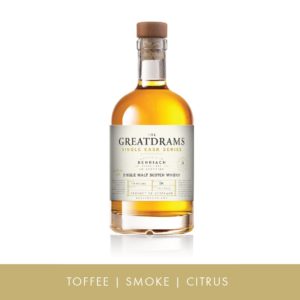 BenRiach 5 Year Old Smoky Single Malt Scotch WhiskyRated 4.82 out of 5 based on 11 customer ratings
BenRiach 5 Year Old Smoky Single Malt Scotch WhiskyRated 4.82 out of 5 based on 11 customer ratings -
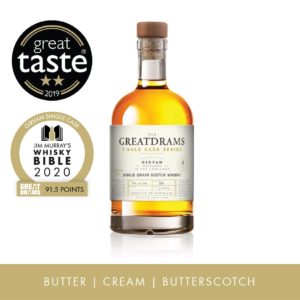 Girvan Single 11 Year Old Grain Scotch Whisky Single Cask SeriesRated 4.87 out of 5 based on 15 customer ratings
Girvan Single 11 Year Old Grain Scotch Whisky Single Cask SeriesRated 4.87 out of 5 based on 15 customer ratings -
 The GreatDrams of Scotland bookRated 4.92 out of 5 based on 12 customer ratings
The GreatDrams of Scotland bookRated 4.92 out of 5 based on 12 customer ratings
European Oak
European oak most commonly comes from a range of countries, including France, Spain, England and Scotland.
It has been in use for centuries and the Whisky industry first began using casks made from English and Scottish oak due to not having to import it.
Spanish oak became popular as casks were being imported from the Sherry industry, something that is still common today, despite the fact that Sherry casks can be quite expensive in relation to something like Bourbon casks.
European oak lends a nutty, Sherried flavour, with lots of dried fruits and caramel notes.
AMERICAN Oak
The use of American white oak is borne out of prohibition, or rather, it is borne out of the need to rebuild the cask making industry after prohibition.
With prohibition, the need for casks decreased, until after the war, when it became law that American Whisky had to be matured in new oak casks.
American oak casks became very common in the Scotch industry and today they make up the majority of casks used.
These casks tend to impart a sweet vanilla flavour with some hints of spice and smoke.
Japanese Oak
Although Japanese white oak is not as commonly used in Scotch maturation, it is often used in Japan.
It is a very porous wood, which means it can be prone to leaks and more evaporation. This means Whisky is more likely to be finished in Japanese oak casks, rather than matured completely in them.
Japanese oak gives Whisky very light, floral flavours, with blossom, flower petals, honey and vanilla coming through.
Buy the Limited Edition Craigellachie Single Malt Rare Cask Series by clicking her
Want to know more about Whisky casks? Read here to find out where can I buy a cask of Whisky?
Greg
You might be interested in
More from the blog
Follow greatdrams
latest articles
Latest whisky
exclusively from GreatDrams
-
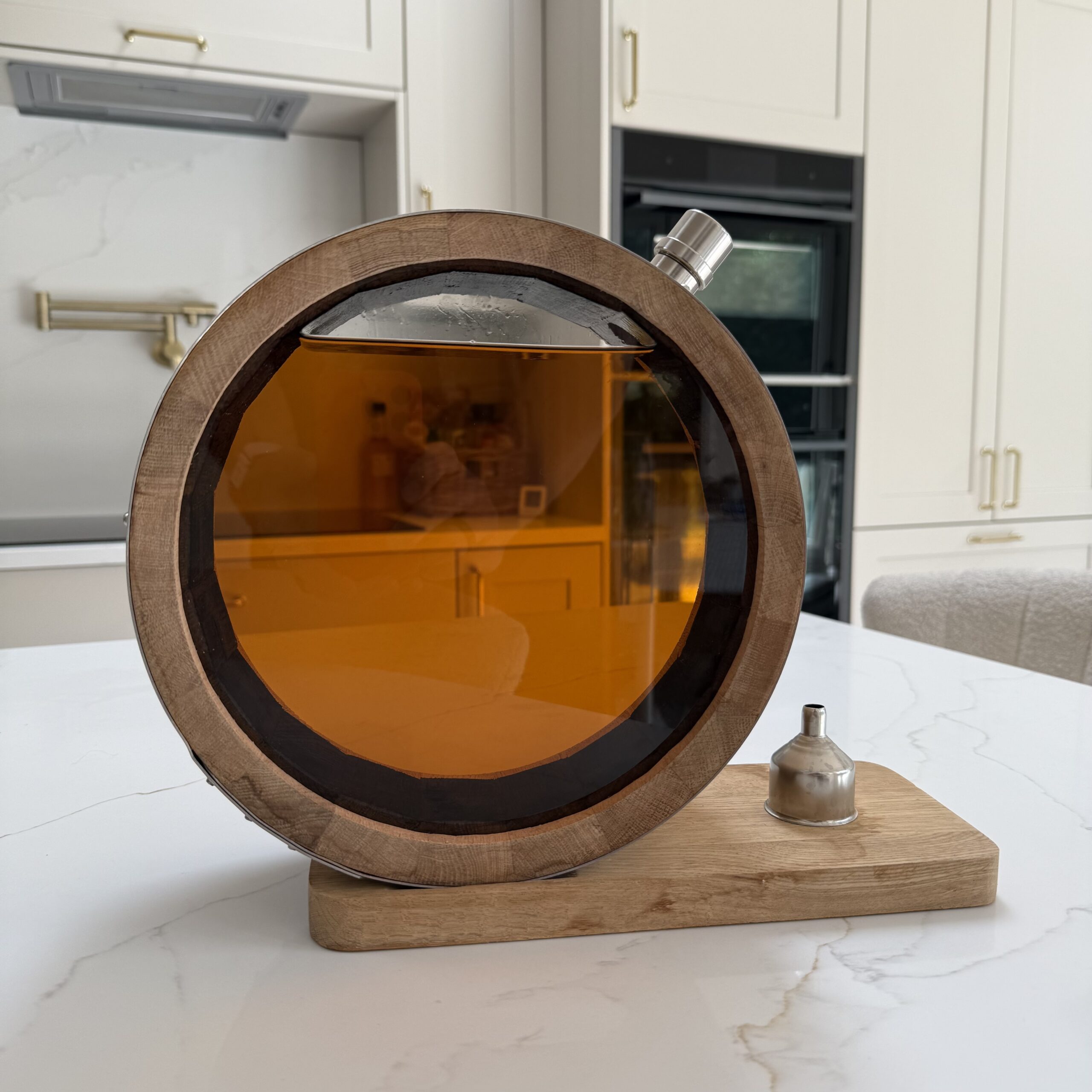
The GreatDrams Signature Barrel Decanter
£200.00 – £370.00



